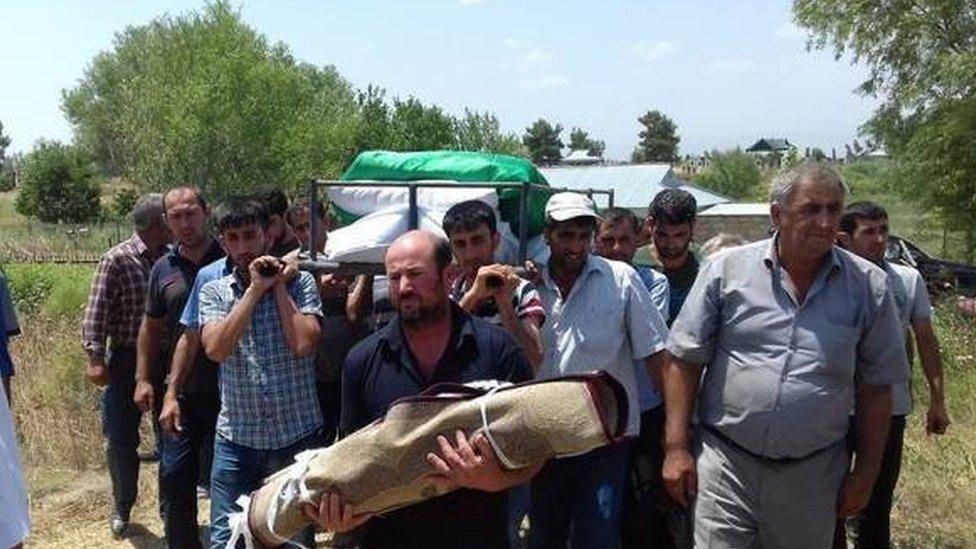Azerbaijan protesters demand war after Armenia clashes
- Published
Riot police used water cannon as they tried to stop protesters storming parliament
Thousands have demonstrated in Azerbaijan calling for war after recent deadly clashes with neighbouring Armenia.
Protesters marched through the capital Baku demanding the government fully deploy the army, with some even entering the national parliament.
Security forces responded with water cannon and tear gas to disperse the crowds.
The recent border fighting has killed at least 16 people.
Both Armenia and Azerbaijan were part of the Soviet Union before its collapse in the 1990s.
Since then they have been stuck in an unresolved conflict over a piece of disputed territory called Nagorno-Karabakh, internationally recognised as part of Azerbaijan but controlled by ethnic Armenians.
The latest deadly flare up in fighting - far to the north of Nagorno-Karabakh - has prompted an international response.
Russia and the US have called for calm. On Wednesday, US Secretary of State Mike Pompeo said his country was "deeply concerned" by the violence and called for "immediate de-escalation" and a resumption of peace talks.
On Tuesday, Turkey's President Recep Tayyip Erdogan said his country would not hesitate to defend Azerbaijan.
What happened in Baku?
Thousands gathered in Baku's Azadliq Square on Tuesday night waving the national flag and calling for the government to mobilise troops and retake Nagorno-Karabakh.
Demonstrators yelled "Karabakh is Azerbaijan!" and "Mobilisation!" as they marched through the city toward the national assembly. Some called for the head of the armed forces to resign.
A small group of protesters entered the building, reportedly smashing windows and chandeliers inside before they were removed by security forces. Police used water cannon and tear gas to disperse the crowds outside.
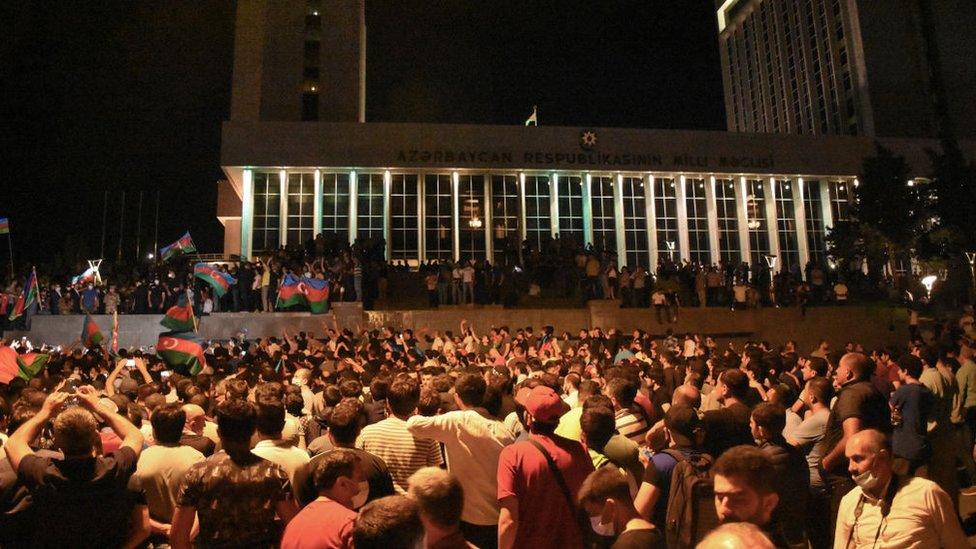
Some demonstrators even entered the national parliament, prompting condemnation from the government
This was the largest public gathering in the country for years, with some media reports estimating up to 30,000 people taking part.
Officials condemned the protesters' actions. On Wednesday, the interior ministry said seven people had been arrested for "mass riots" and "resistance or use of force against a government official", and a full investigation is under way. Seven officers were injured, a statement said.
Mass gatherings are currently banned in Azerbaijan in a bid to control the spread of the coronavirus.
What's happening on the border?
Fighting broke out over the weekend involving tanks and artillery. On Wednesday, however, defence officials from both countries said there had been no fresh fighting overnight.
Both sides accuse each other of shelling civilian areas on the border between Tavush in north-eastern Armenia and the Tovuz district in Azerbaijan.

At least 11 Azeri soldiers and one Azeri civilian were killed, according to Azerbaijan. Armenia has reported that four of its soldiers have died, including two officers.
Azerbaijan's military said it had destroyed an Armenian fortification and artillery and had inflicted casualties on "hundreds" of Armenian troops. Armenia denied suffering any casualties on that scale.
Tensions last flared into conflict in 2016, with the countries clashing over the disputed territory for four days. The BBC reported from both sides of the fighting.
The Organisation for Security and Co-operation in Europe (OSCE) has long been trying to mediate a settlement of the conflict, with diplomats from France, Russia and the US - making up the OSCE Minsk Group - trying to build on the ceasefire.
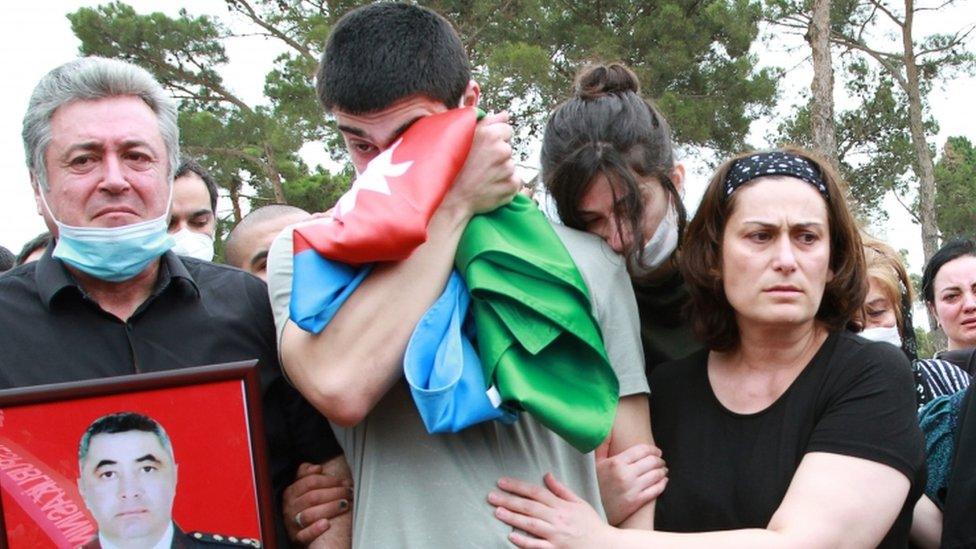
Azeris have publicly mourned those who died in the border fighting
- Published3 May 2016
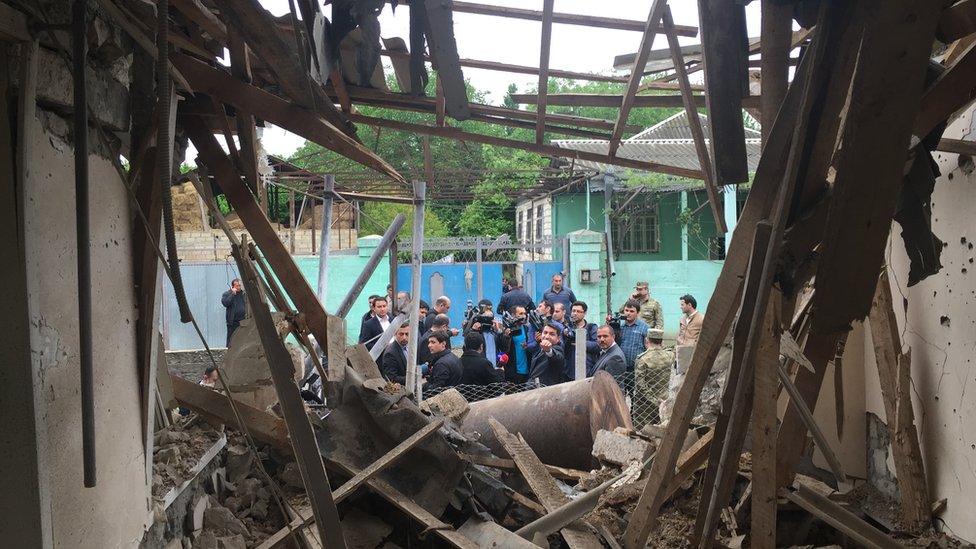
- Published6 April 2016
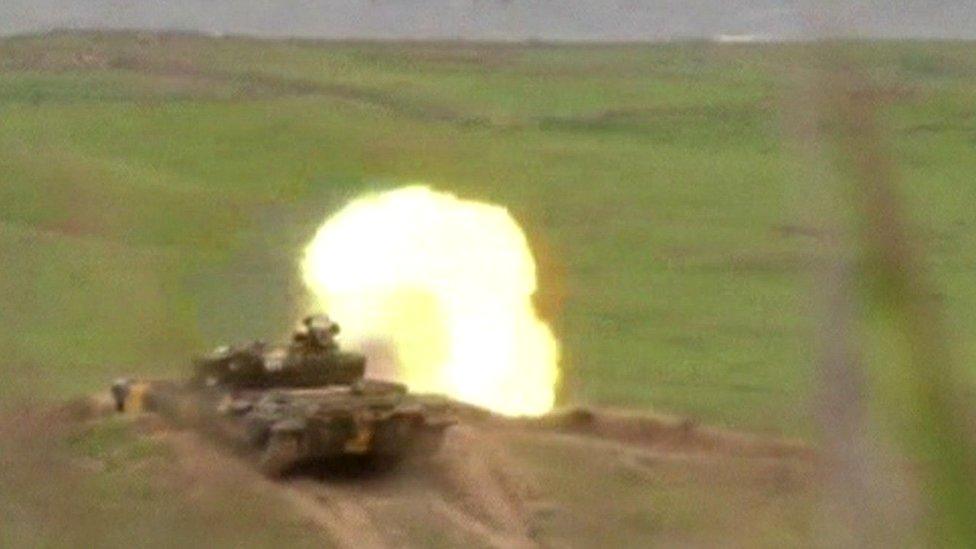
- Published5 July 2017
